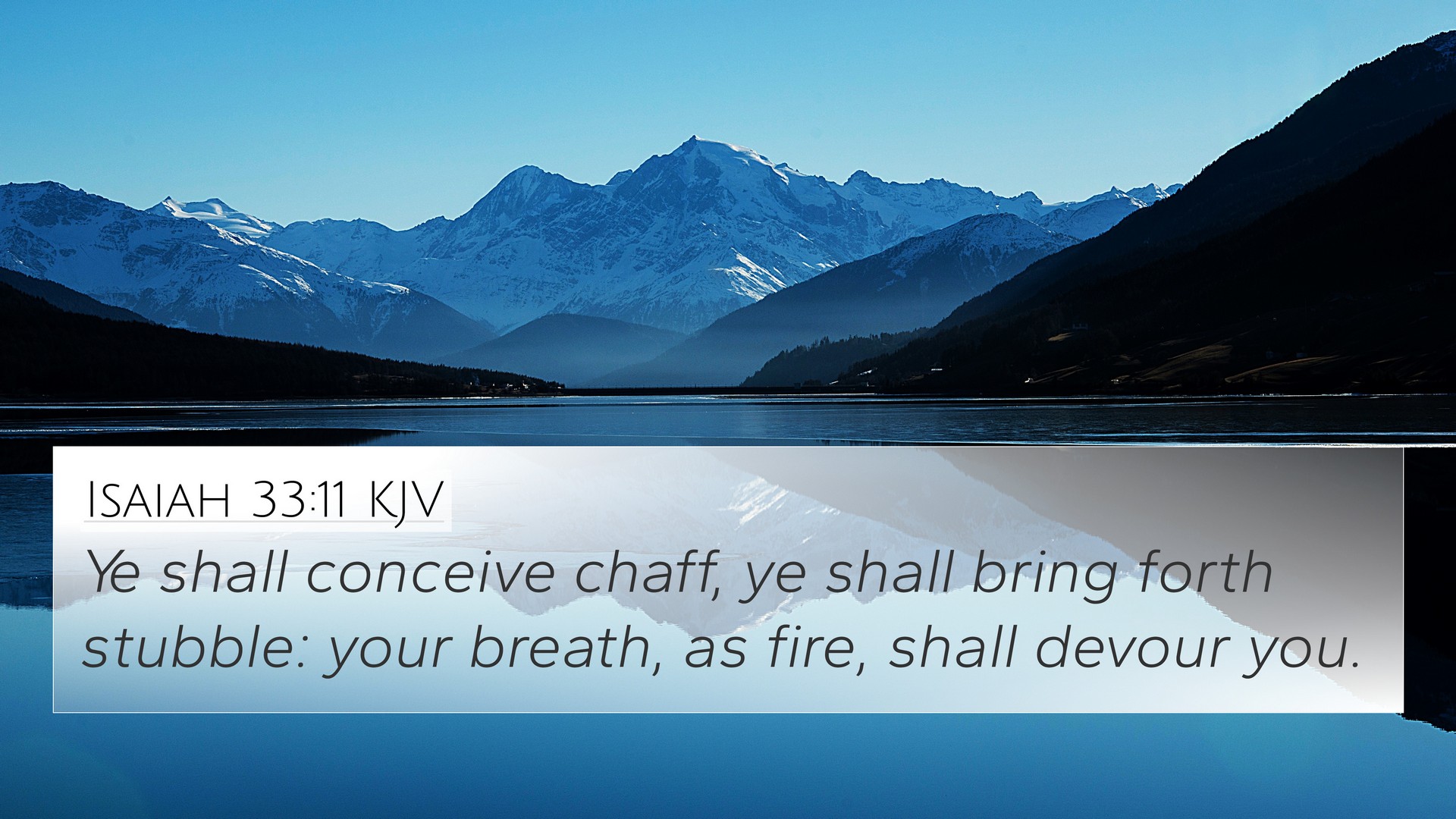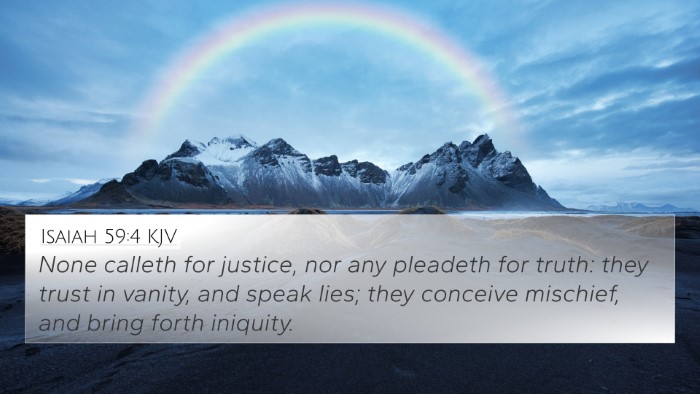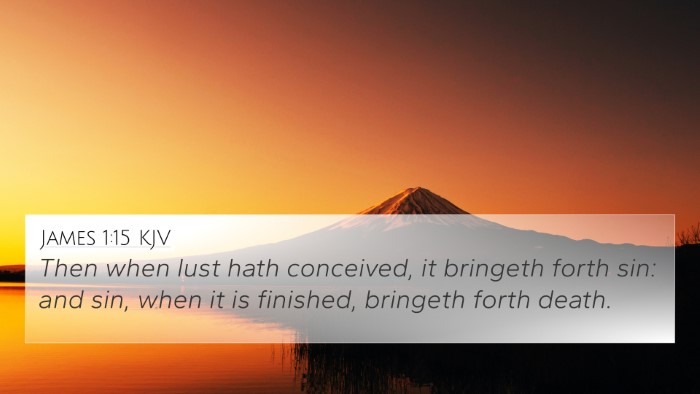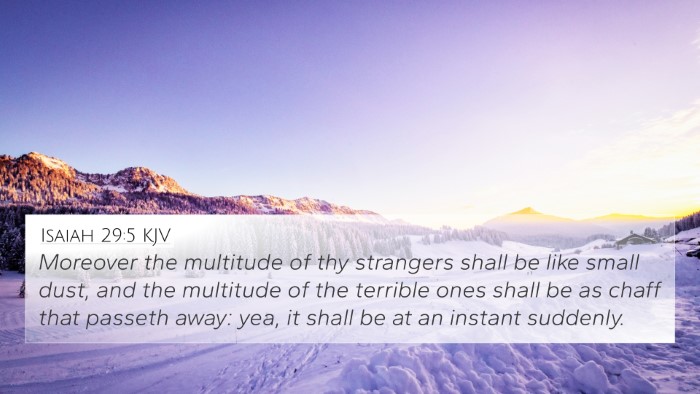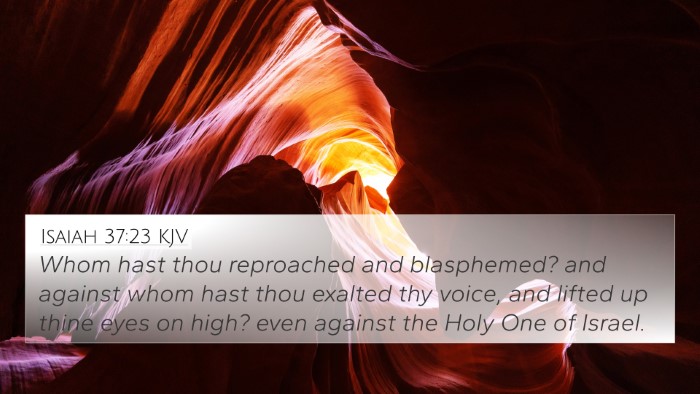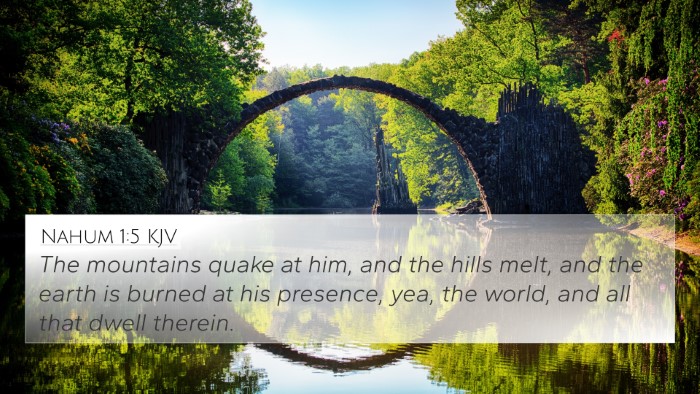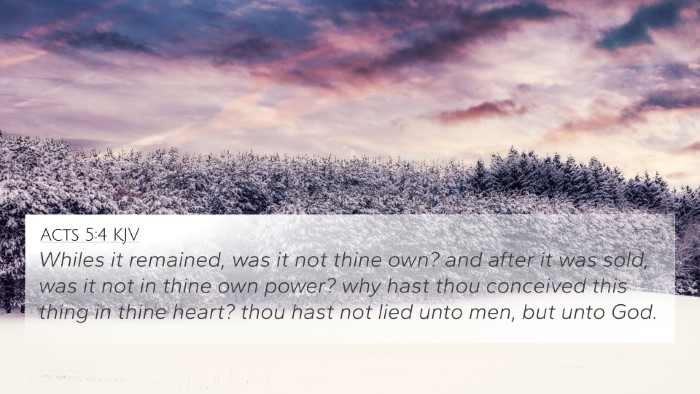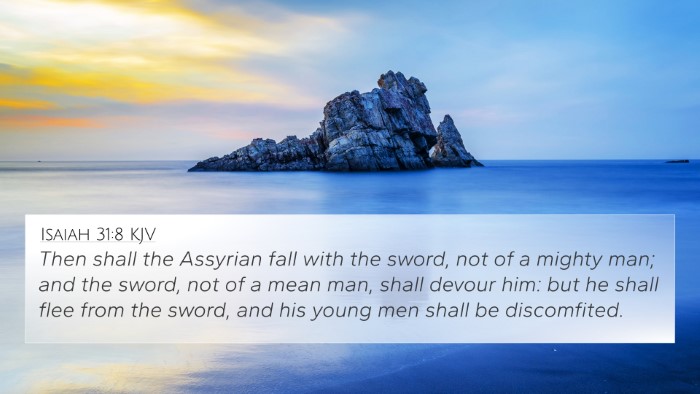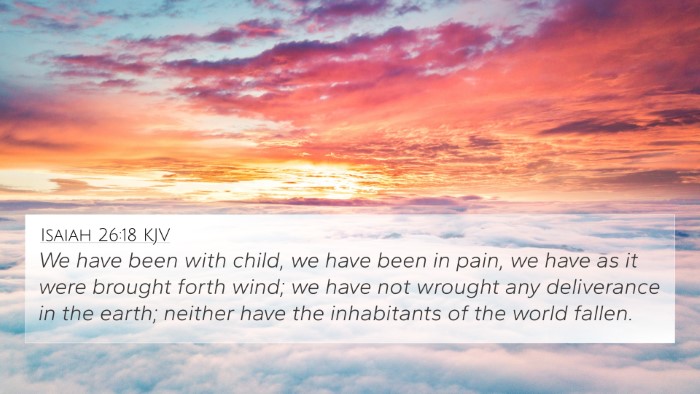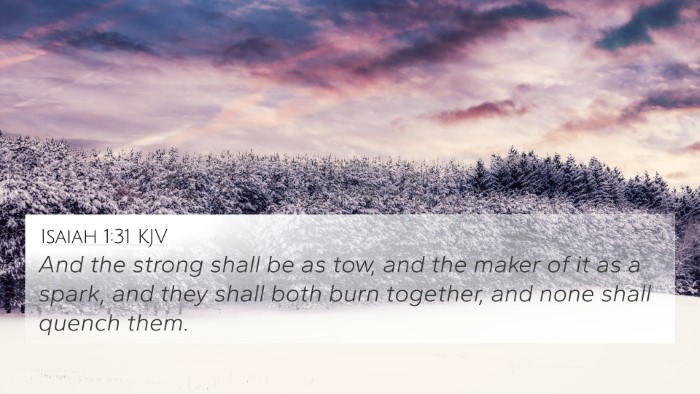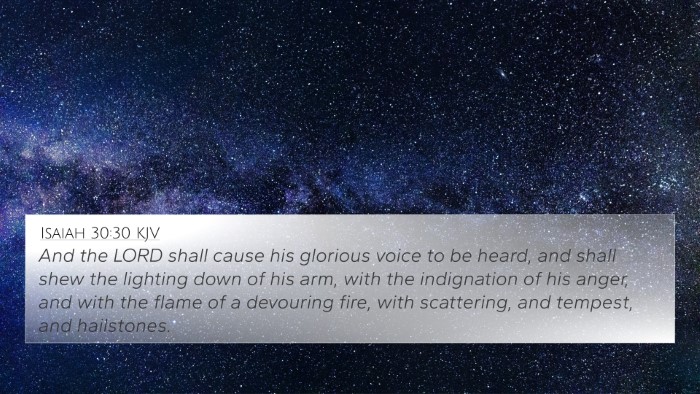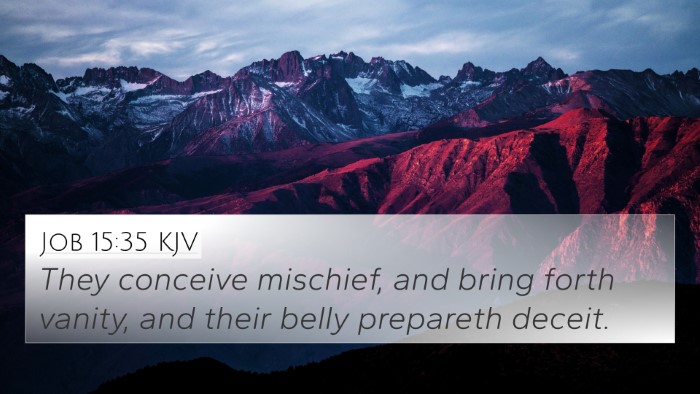Understanding Isaiah 33:11
Isaiah 33:11 states: "You conceive chaff, you give birth to stubble; your breath is a fire that will consume you."
This profound verse conveys a critical message about the consequences of evil intentions and the futility of human efforts that stand against God. It uses vivid imagery to depict the results of misguided spiritual pursuits.
Commentary Insights
Matthew Henry's Commentary:
Henry elaborates on the idea that the desires and ambitions that are not aligned with God are ultimately fruitless. He highlights that those who pursue wickedness will realize that their efforts yield nothing but destruction, akin to chaff and stubble, which are byproducts of a failed harvest.
Albert Barnes' Notes:
Barnes suggests that the 'chaff' represents what is worthless, indicating that the thoughts and actions of the wicked will culminate in their own demise. His interpretation focuses on the metaphorical representation of sin and its inevitable self-destruction.
Adam Clarke's Commentary:
Clarke emphasizes the judgment aspect of the verse, detailing how the breath of the wicked, likened to fire, consumes both their plans and ultimately themselves. He relates this back to the broader theme seen in the prophetic literature regarding divine judgment.
Key Themes and Meanings
- Futility of Wickedness: The metaphor of conceiving chaff indicates that efforts against God lead to nothing of substance.
- Divine Judgment: The fire that consumes showcases God's judgment upon those who oppose Him.
- Imagery of Harvest: This verse reflects agricultural metaphors which are common in the Scriptures, reinforcing spiritual truths through relatable images.
- Accountability: There is a clear message about being accountable for one's actions and the spiritual state of the heart.
- The Power of Breath: The breath symbolizing life and spirit is shown to have destructive potential when it is tainted by sin.
Bible Verse Cross-References
Isaiah 33:11 resonates with several other passages in scripture that discuss judgment, the futility of evil, and the consequences of human actions.
- Job 31:3: Discusses the fate of the wicked, emphasizing that judgment awaits those who do wrong.
- Galatians 6:7: "For whatever a man sows, that he will also reap," reinforcing the principle of accountability for actions.
- Psalm 1:4: Contrasts the path of the righteous with the worthless pursuits of the wicked.
- Proverbs 10:28: Highlights the difference in outcome for the hope of the righteous compared to the wicked.
- Matthew 3:12: John the Baptist speaks of Jesus' coming judgment, relating to the themes of burning away the chaff.
- 2 Thessalonians 1:9: Indicates eternal destruction for those who do not know God or obey His gospel.
- James 4:14: Reminds us of life's fleeting nature and the importance of humble submission to God's will.
- Isaiah 5:24: Describes the consequences for those who disregard God's law, emphasizing their unfortunate fate.
- Jeremiah 23:29: Metaphorically speaks to God's word being like fire that consumes falsehood.
- Revelation 20:15: Provides insight into the ultimate fate awaiting the wicked at the end of time.
Connections Between Bible Verses
Understanding Isaiah 33:11 through comparative analysis with other scriptures enhances the comprehension of its themes of judgment and the results of sin.
- The antithesis of Isaiah 33:11 is found in Psalm 112:6, which states that the righteous will be remembered forever.
- 1 Peter 1:24-25 relates to the transient nature of human endeavors compared to the enduring word of God.
- Luke 3:17 reinforces the imagery of sorting the wheat from the chaff, connecting to divine judgment themes.
- Isaiah 40:24 indicates the ephemeral nature of those who oppose God, akin to the stubble mentioned in Isaiah 33:11.
Tools for Bible Cross-Referencing
To delve deeper into the analysis of Isaiah 33:11, various tools are available:
- Bible Concordance: A detailed index to help locate words and phrases throughout the scriptures.
- Bible Cross-Reference Guide: Provides a systematic framework for comparing related verses.
- Cross-Reference Bible Study: Methods for utilizing cross-references to enrich understanding of passages.
- Bible Chain References: A technique to follow themes through linked verses.
Interpreting Biblical Themes Through Cross-References
This method can illuminate how themes of judgment, redemption, and the eternal conflict between righteousness and wickedness play out throughout the Scriptures. Isaiah 33:11 serves as a vivid reminder of the consequences of straying from God's intended path, encouraging readers to reflect on their lives in light of divine standards.
Conclusion
In conclusion, Isaiah 33:11 emphasizes the spiritual barrenness of wickedness and the certainty of divine judgment. By engaging with its meaning through commentaries and cross-referencing with related scripture, one can gain a more thorough understanding of its significant role within the broader biblical narrative.
